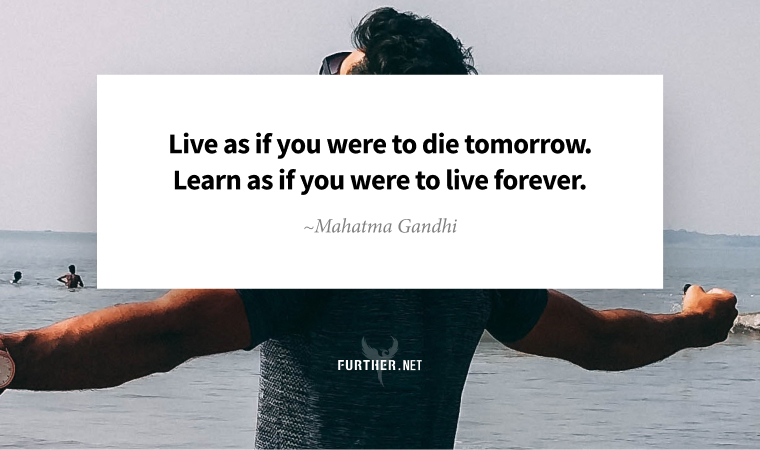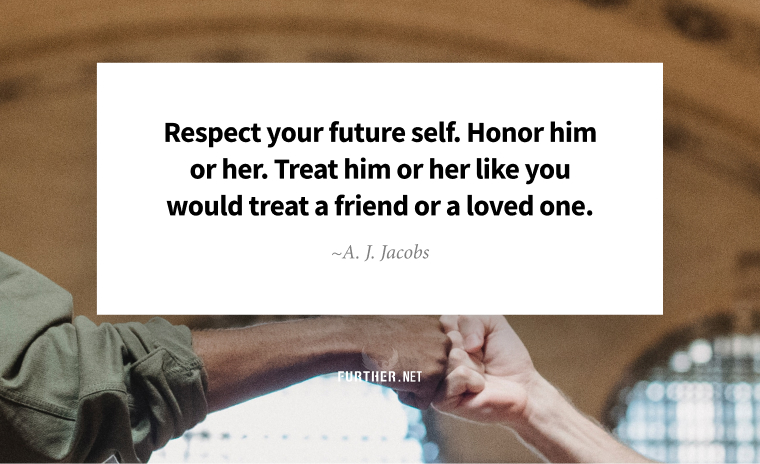
Last week we talked about how the buzzword “lifelong learning” is becoming the very real need for long life learning as we live extended healthy lives. In short, perpetual learning is the key to success at work, now and into the future.
Current thinking divides life into three stages — learn, earn, and retire. Going forward, what we think of as the “retirement” stage will be a multi-stage extended remix where you’ll continue to learn and earn in all new ways.
Easy enough to say, right? Now we need to focus on how to learn efficiently at midlife. Problem is, what we know about studying from decades ago is far from the state of the art.
Here are a few tips on effective long life learning from Scott Young’s book Ultralearning: Master Hard Skills, Outsmart the Competition, and Accelerate Your Career. Fortunately, you have more learning assets on your side at midlife than you may think.
1. Retrieval Beats Review
The old idea of reviewing notes or chapters in a textbook until you know the material cold is simply not that effective. Research shows that effective learning is not in repetitious review, but in the active retrieval process. One of the best ways we retrieve is by taking tests.
We generally think of quizzes and tests as an evaluation of how much retention has already occurred. In reality, a single quiz after reading a book or hearing a lecture results in greater retention than re-reading the book or reviewing notes from the lecture. Being tested on a topic helps you learn the subject matter better.
Beyond testing, there’s an even more powerful retrieval process, which is known as elaboration. Elaboration is the process of giving new material meaning by expressing it in your own words and connecting it with what you already know. In other words, explaining something you’ve learned to someone else is the way to truly master new material.
2. Knowledge Compounds
It’s true that our mental processors slow down a bit as we age. This is a diminishing of fluid intelligence, which is the abstract problem-solving ability we relied on when we were younger.
But what we’ve gained is called crystallized intelligence. Crystallized intelligence is defined as the ability to use the vast set of knowledge and experience you’ve acquired over the years, and it tends to increase with age through one’s forties, fifties, and sixties. Plus, it doesn’t diminish until quite late in life, if ever.
As you learn new things, you integrate them into what you already know. This integration provides more hooks for you to recall that information later. Learning is much easier once a foundation is established, and you’ve got a vast foundation. The key is to find ways to associate new skills and information with the large amount of skill and knowledge you already have.
3. Relearning is Fast
At the other end of the spectrum, you may be feeling you’ve accumulated so much knowledge that you’ve forgotten more than younger people currently know. That’s okay, because forgetting is simply the natural consequence of not regularly using certain skills and retrieving specific knowledge.
The good news is relearning is usually much faster than initial learning. That’s because prior knowledge is still there at some level, it’s just below the threshold where you can instantly recall it. Relearning stuff you used to know is simply exposing yourself to prompts that bring the information back into conscious awareness, which is much easier than learning something completely new.
Having to relearn something you once knew may seen frustrating, especially if it feels like you’re treading water instead of moving forward. But often this forgotten knowledge is the key to new insights at the intersection of what you’re learning fresh, which can give you a competitive advantage that others don’t see.
Further reading:
Ultralearning: Master Hard Skills, Outsmart the Competition, and Accelerate Your Career (Amazon)
Keep going-
P.S. New to Further? Join us here.
Don’t Trust the Process(ed)
We know that a healthy diet and good nutrition are essential to a high-performance human brain. Conversely, eating packaged foods like cereal and frozen meals has been associated with anxiety, depression, and cognitive decline.
The Link Between Highly Processed Foods and Brain Health (New York Times free article)
Vintage Creative
We tend to underestimate the brilliance and creative powers of our midlife brains. Truth is, we’ve become really good at making connections and spotting patterns in a way that simply might not have been possible when we were younger.
Midlife Creativity (Psychology Today)
Feeling (Not) Your Age
Most people feel younger than they actually are chronologically, and that impacts you in highly positive ways. And it seems modern adults are feeling increasingly younger than ever.
Younger Than Ever? Subjective Age Is Becoming Younger and Remains More Stable in Middle-Age and Older Adults Today (Sage Journals)
The Midlife Sabbatical
As retirement age gets pushed back, taking some time off at midlife instead will become increasingly common. Speaking from my own experience, it can be just the break you need to come back strong.
Meet a Gen Xer Who Took a Year-Long Career Break. He Lost 25 Pounds, Ran a Marathon, and is Now Ready to Return to Work (Business Insider)
Reinvent Yourself by Embracing What’s Possible

By Trudi Roth
As a kid, you probably had a good idea of what you wanted to do when you grew up. Anything seemed possible: doctor, musician, veterinarian, firefighter, novelist, mermaid (my go-to).
Unsurprisingly, research shows most of us don’t end up in our childhood dream jobs. Nearly 70% of people say they never got there, and around 60% say they still wish they could.
If you’re still harboring a secret desire about your professional path, here’s a game-changing question: is it possible? In other words, can you see yourself doing the thing you always said you wanted to do?
The ability to envision a future state is just the start. From there, with courage, encouragement, and grit, what’s possible can become plausible — and ultimately, a new reality.
The Self on the Shelf
When journalist Joanne Lipman, author of NEXT! The Power of Reinvention in Life and Work, first interviewed James Patterson, he was an ad exec, and they were supposed to discuss a new fast food campaign. But Patterson only wanted to talk about writing fiction, which Lipman reluctantly indulged.
Ten years later, Lipman was shocked to see the former adman promoting his new book. Today Patterson is an iconic author of 100 bestselling books (and counting.) As he told Lipman:
Maybe I was delusional, but I never thought of myself as an advertising person. I always planned to be a writer.
Patterson’s ability to conjure his future illustrates what social psychologists Hazel Markus and Paula Nurius call “possible selves.”
While self-concepts — “I am a kind person” or “I am a good parent” — are rooted in the present, the researchers found that people are also informed by ideas about what they might become and how they might change.
Researchers have found a positive, future-forward perspective helps boost well-being and decrease depression. And this supports employing the reinvention linchpin: motivation.
To Dream The Possible Dream
As Dr. Markus explains, moving from daydreaming to doing entails bridging the gap between your “now” self and your possible self. Lipman notes there are a few ways to do this:
- Make a move: Baby steps include taking a course, starting a hobby, or accepting a side gig.
- Get input: Enlist someone who can help you clearly see your abilities, strengths, and weaknesses, from a therapist to a trusted friend.
- Share your goals: Research shows stating your objectives makes your likelihood of accomplishing them twice as likely.
- Leverage “weak ties”: In other words, network. Reach out to people you know, even casually, to get input and support to achieve your goals.
Creating a future you isn’t child’s play. But by tapping into your possible self, you have a proven path to ground your dreams in action steps and make your potential pursuits a definitive reality.
Want to Make a Change? Conjure Your ‘Possible Selves.’ (New York Times)
NEXT! The Power of Reinvention in Life and Work (Amazon)
further: flashback

Spacehog – In the Meantime
Resident Alien, 1995
In the Meantime by Spacehog has had a modern renaissance 27 years after topping the US Billboard Mainstream Rock and the UK Rock charts. Old and new fans alike heard the song in the trailer for Guardians of the Galaxy Vol. 3, and then in the film itself last weekend. (YouTube)
further: sharing

Further subscribers who share the newsletter with friends can gain three months of access to our exclusive membership community Well + Wealthy with only five referrals. Get your own free weekly dose of health, wealth, travel, and happiness advice here, and find out all the details on our referral program.
Thank you for sharing Further!
